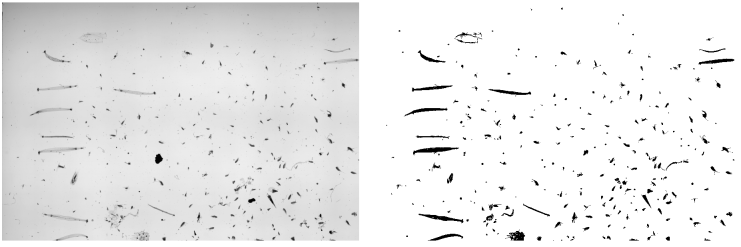Workshop #1: Neural networks for image segmentation in ecology - Imaginecology
Speaker: Jérémy Fix (CentraleSupélec - LORIA, Jeremy.Fix@centralesupelec.fr)
Date: April 28th (Monday), 9am-12am (three hours)
Place: CentraleSupélec (roomA305-306), Metz
Number of participants: 20
Content:
In this workshop, we will begin with a presentation of a few popular neural network architectures for object detection and semantic segmentation, including a quick reminder of the structure of a convolutional network. The focus will be on convolutional networks and not on the latest architectures based on Vision Transformers. We will continue with a practical session during which we will study the construction of a U-Net network for binary semantic segmentation on ZooScan images. This will be an opportunity to see how to (pre-)process large images, build a model, determine the loss function and metrics and train the model. The code provided will be in the form of a pre-filled jupyter notebook. Although most of the code will be provided, for the workshop to be of benefit to you, you will need to have a minimum knowledge of python programming and deep-learning. The jupyter notebook will run on CentraleSupelec's computing clusters, so all you need is a web browser to access it.

Target audience: ecologists interested in automatic image processing approaches.
Prerequisites: minimum knowledge of Python programming and deep-learning.Participants should bring their own laptops.
Registration form: accessible while registering to the conference
To take part in the workshop, please send your CV andtell us about your experience in programming, particularly Python, and deep-learning. In addition, please indicate whether you plan to use deep learning in your research and for what purpose.
Workshop #2: Decision trees - Forestinecology
Speaker: Arnaud Callebaut (AgroParisTech, arnaud.callebaut@agroparistech.fr) et Lionel Hertzog (IGN, lionel.hertzog@ign.fr)
Date: April 30th (Wednesday), 9am-12am (three hours)
Place: LIEC (grenier room), campus Bridoux, Metz
Number of participants: 15
Content:
Algorithms based on decision trees, such as Random Forest or Boosted Regression Trees, can be used to produce non-parametric models for both classification and regression. These models have very good predictive capabilities and are frequently used in ecology, for example to produce distribution models or to classify LiDAR images.
In this workshop we will present the concepts behind these algorithms and compare their performance depending on the data and analysis objectives. During interactive coding sessions on real datasets, we will see how to train these models, interpret the results and optimise the hyperparameters.
Target audience: all colleagues interested in tree-based approaches.
Prerequisites: basic knowledge of data analysis and statistics, ability to code in a language such as R or Python (the workshop will be given in R). Course materials will be made available via github.
Registration form: accessible while registering to the conference
